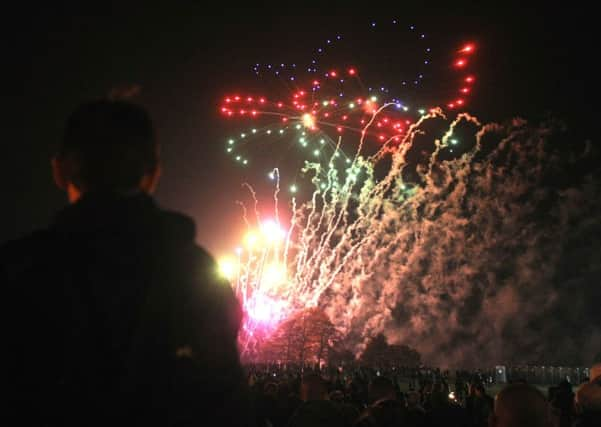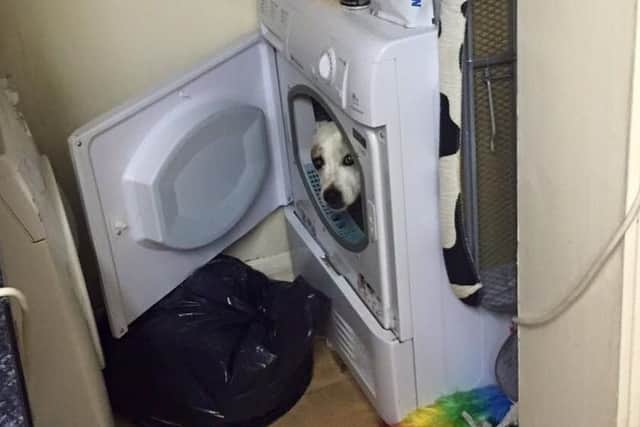Yorkshire pet owners call for end to 'year-round' fireworks


But owner Claire Ewers tells a very different story. She took the photographs as her terrified pet cowered from the noise of fireworks exploding near her home.
Bonfire Night is one thing, but more and more dog owners are calling for a clampdown on the increasing use of fireworks at other times of the year because of the trauma it inflicts on their animals.
Advertisement
Hide AdAdvertisement
Hide Ad“When fireworks are not set off on normal dates, it is impossible to plan ahead,” said Claire, whose other dog, Roxie, is just as badly affected.


“I could be at work worrying that my girls are home alone and scared, which is heartbreaking. They will often be sick, and mess themselves too.”
This week, the bid to restrict the use of fireworks reached Parliament on the back of a petition supported by more than 100,000 dog lovers and the RSPCA.
The campaign wants to see the use of fireworks and their sale restricted to just four days a year; Bonfire Night, New Year’s Eve, Chinese New Year, which falls in late January or early February, and Diwali, which takes place in October or November.
Advertisement
Hide AdAdvertisement
Hide Ad“If it was one week of fireworks, or if they were let off just on normal celebratory nights like New Year’s Eve, or November 5, we could plan ahead and handle it,” adds Claire. “But not three or four months.”


Jess and Roxie aren’t alone. It’s estimated that nearly half of all dogs are fearful of fireworks. And they’re not the only animals that are suffering. Amanda Thorne lost her horse, Beemer, following an unexpected private fireworks display near to where he was being stabled. Beemer, who was 11 at the time, suffered severe colic – something he had never experienced before – following the fireworks party in the days after Bonfire Night five years ago.
Amanda was called by the stable owner who said Beemer was “going mad”. She immediately travelled to the stables while calling an emergency vet.
“He wasn’t going mad,” she recalls, “he was colicking, he was trying to tear the walls down he was thrashing around so much.
Advertisement
Hide AdAdvertisement
Hide Ad“We got him straight to hospital where he had to have two surgeries within 36 hours. In one week I spent £9,500 on vet bills.”
During his first operation Beemer had to have six metres of small intestine removed. Just hours later vets had to open him up again to untwist his guts. Amanda, who runs a small stud farm and used to work as a veterinary equine nurse, got Beemer through these early days although it took a year for him to be free from infections.
She then moved to a rural